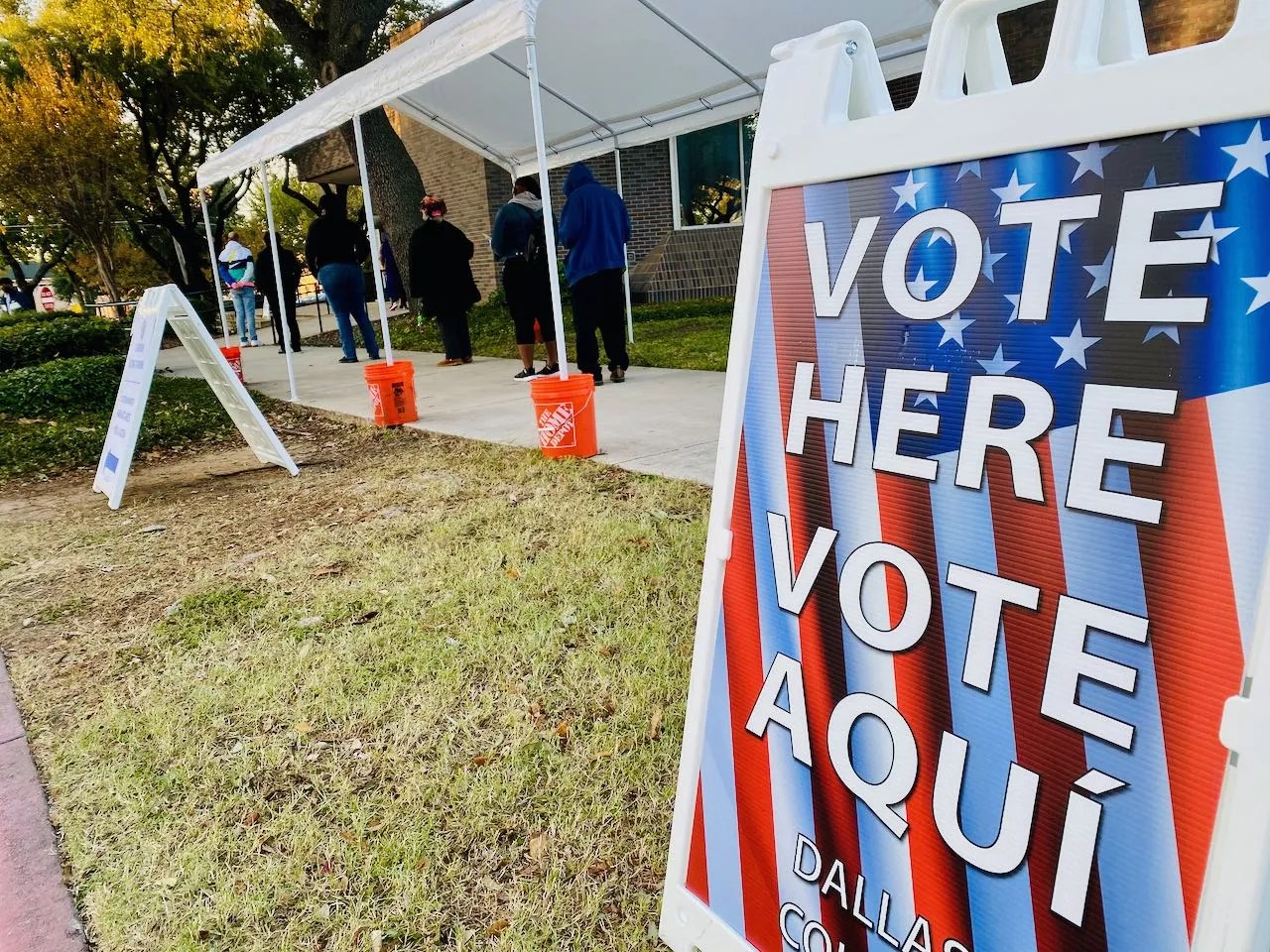
Lauren Drewes Daniels

Audio By Carbonatix
During the 2021 session, the Texas Legislature passed a slew of laws aimed at restricting where and how people can cast their votes, many of which prompted criticism from watchdogs and advocacy groups.
Now, the D.C.-based Brennan Center for Justice says data the nonprofit group obtained shows widespread racial disparities in which mail-in voting applications and ballots were rejected.
In September 2021, Texas Gov. Greg Abbott signed into law Senate Bill 1, broad legislation that severely limited local control of elections and allowed the state to further tighten its grasp on how Texans can vote.
Upon signing the bill, Abbott insisted the new law “ensures trust and confidence in our elections system – and most importantly, it makes it easier to vote and harder to cheat.”
Contacted by the Observer, Abbott’s office didn’t respond to request for comment on the Brennan Center’s analysis of the data. But in a press release at the time, Abbott argued that “safe and secure elections are critical to the foundation of our state.”
One provision in SB 1 restricted the conditions under which voters could send in their ballots by mail or apply for mail-in ballots. It also barred voting advocacy groups from sending out “unsolicited” applications for mail-in ballots.
According to the Brennan Center’s analysis of data obtained through a public records request, SB 1 led to “extremely high levels” of absentee voter applications and mail-in ballots being rejected during the March primary elections.
The Brennan Center said the data was incomplete because many counties had failed to report rejected applications. Still, the watchdog explained, “Nearly 12,000 people who requested mail ballots had their applications rejected. About one-third of those people ended up voting in person, and two-thirds did not vote at all.”
Voters of color, the advocacy group observed, had their applications and ballots “rejected for S.B.1-related reasons at higher rates than those of white voters.”
“Tragically, it’s hard to think this isn’t Republicans getting exactly what they wanted.” – Rose Clouston, Texas Democratic Party
Asian Americans had their ballots rejected at the highest rate, according to the data, with Latino and Black voters not far behind. Additionally, voters of color were far likelier than white voters to never even receive a mail ballot due to the higher rates of rejection.
For overall rejections of mail-in ballots and applications combined, the numbers were even starker. “SB-1 related rejection rates were more than a third higher for Black and Latino voters than for white voters and more than 60 percent higher for Asian voters than for white voters,” the Brennan Center noted.
Texas is one of several Republican-led states around the country that passed what the Brennan Center describes as “anti-voter legislation” following the November 2020 elections.
In the wake of that vote, many Republicans nationwide backed former President Donald Trump’s claims that the election had been rigged in Joe Biden’s favor.
Between Jan. 1 and Dec. 7, 2021, lawmakers had filed more than 440 bills in 49 states that effectively curtail access to the ballot box. Meanwhile, at least 19 states had successfully enacted 34 restrictive new voting laws following Biden’s electoral victory over Trump.
Rose Clouston, the Texas Democratic Party’s director of voter protection, said by email, “SB-1 was a racist law when it was written – we told Republicans at the time that it was a racist law, and now this law has, of course, had racist consequences.”
Clouston added, “Tragically, it’s hard to think this isn’t Republicans getting exactly what they wanted.”